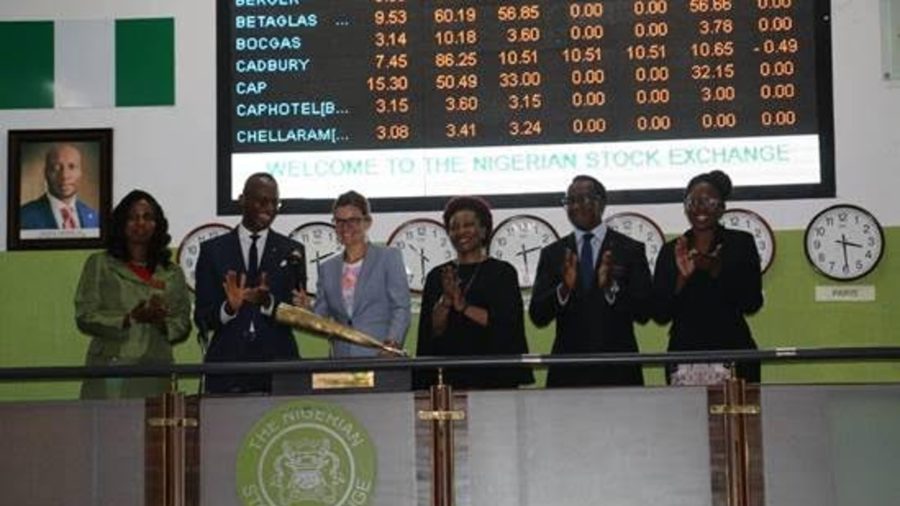Moving from Kigali to Lagos last year, I expected a pretty jarring experience. I was going from a country of 12 million to a city of 22 million, from one of the world’s most pristine, orderly, safe places to what I expected to be, well, pretty loud and chaotic. And in many ways, Lagos did not disappoint: it is definitely not a city for the faint-hearted.
When I arrived, I knew that the Lagos economy in itself is significantly bigger than that of the whole of Kenya. But what I had not quite clocked is the extent to which Lagos is moving and booming. I had not fathomed the buzz about the city – the energy, talent, entrepreneurship and creativity. Many in Africa dream of Lagos as some elsewhere have dreamed of New York: as the city that never sleeps, the El Dorado. The Financial Times recently noted that “In a country that is byword for poor governance, Lagos is thriving.”
And indeed, it is. The Dangote oil refinery is taking shape. With a capacity of 650,000 barrels a day, it will be the biggest refinery of its type in the world. Further down the road, a completely new modern city called Eko Atlantic is being built on land reclaimed from the Atlantic Ocean. We were able to see both sites from a helicopter when the PM’s Trade Envoy visited recently, and I can safely say that the scale and audacity of both these projects is mind-boggling.
In Yaba, otherwise known as “Yabacon Valley”, hundreds of banking institutions, educational institutions, technology and startup companies are growing every day, making Lagos the African tech hub capital. Mark Zuckerberg and Bill Gates visited recently: they’re never ones to be behind the curve. Nigerian music, fashion and film are also thriving and reverberating not just in Africa but across the world. Nollywood, Nigeria’s film industry, puts out two hundred movies a week, second only to Bollywood. It’s been fantastic holding screenings of some of these films at the residence, and indeed having Doctor Sid unexpectedly sing at the QBP in Lagos, ensuring all of our guests hit the dance floor.
British business is doing well too: Unilever’s most profitable global operation is here in Nigeria. Diageo/Guinness and Shell have strong and long-established operations in Nigeria. BA’s first flight from the UK to Nigeria was 81 years ago. And our team has been supporting newcomers too – Prudential, for example, has just set up shop here paving the way on the life insurance market.
I am not blind to the challenges. Nigeria’s current business climate remains challenging – despite it having gone up 24 places in the Ease of Doing Business indicator last year, red tape is prevalent. It’s difficult to get visas and business licenses, government policies and regulations can change unpredictably, land tenure is challenging, etc. etc. On top of that, power supply is erratic and infrastructure is poor. The economy has been too reliant on oil. Public funds have been mismanaged. Poverty is deep rooted and has gone up in absolute numbers. The discrepancy in wealth is profound and in many ways, shocking.
But if we are serious about prosperity in general, and in Africa in particular, wouldn’t you agree that ignoring Africa’s largest economy would be at our own peril? Nigeria is set to become the world’s third most populous country with a whopping 400 million people. And that is a very big market, or indeed, lots of different markets in one country. Nigeria is a hidden gem for those businesses that are willing to go in with their eyes wide open, and with good risk mitigation plans.
And so the UK Government is supporting economic development, through programmes and initiatives designed to kick-start new markets and supply chains, reform the business environment, support key sectoral reforms, and address corruption. We are working hard to raise awareness about opportunities, challenge stereotypes about the country, and meet the strong demand for UK products and capability. We plan to do more – not least in the area of financial services and capital market development, where the appetite is huge.
In the next five months, we are hoping to get ministers from FCO, DFID, DIT, HMT and the Home Office visiting Nigeria, on top of the Lord Mayor who will be here next month. We will welcome them with open arms to share with them our passion for this country and our determination to help it fulfil its enormous potential. It is an exciting time to be working here.

